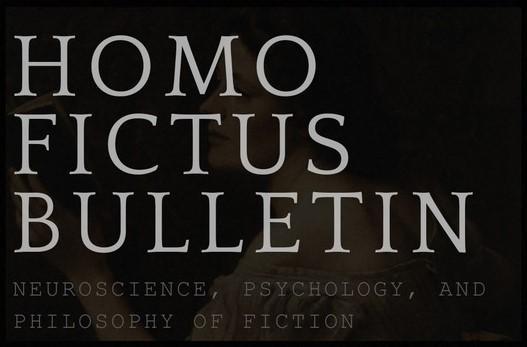Why is Sci-Fi Fun?
Some of us enjoy reading Sci-Fi, while others don’t. Why is that? What are the differences between someone for whom Sci-Fi is fun and interesting and the other who finds it not that much interesting? Edgar Dubourg and colleagues (2024) from the Institut Jean Nicod, Département d’études cognitives, École normale supérieure, Université PSL, Paris, France, answer the question from different angles.
Megapolis by Robert McCall
Imagine this scenario: You are walking in a forest that you have never explored before. Because the forest is new to you and you have never been there, you experience uncertainty and unpredictability due to its novelty. You may have no idea about what’s happening there. In such an uncertain forest, your brain may struggle to answer those questions because you lack clues to respond to the inquiry. This uncertainty can be both aversive and attractive. It is discomforting as you grapple with questions like “What’s going on” or “What should I do?” This uncertainty can be scary and pose short-term risks since you can’t understand the situation or predict anything there. However, this unexplored forest is also attractive because you anticipate acquiring new information from this new place. This reward motivates you to delve deeper into the forest, explore new information about the situation such as learning about animals living there, birds, trees, etc., and consequently reduce the level of prior high-level uncertainty.
If we agree that the human reward system (via dopaminergic pathway) rewards actions that lead to achieving evolutionarily programmed goals (e.g., eating) as well as actions that increase the probability of achieving such goals in the future (e.g., information about which resources to collect), we should also agree that “new information in itself is rewarding for the brain” (p. 3). In other words, curiosity is rewarding because new information provides resources for an unknown situation that might be helpful for future encounters. Human beings are rewarded when they acquire new information.
You may wonder how to acquire new information. Imagine the forest scenario again. If you couldn’t tolerate the uncertainty of the forest before exploring it, you couldn’t discover new information, and consequently, the situation would still be discomforting and opaque for you. But if you tolerate the uncertainty of the forest, your brain rewards you due to curiosity. As a result, when you pass through the forest and learn about the animals, birds, etc., you no longer feel discomfort in the face of the forest because you now have knowledge about it. In short, increasing the level of uncertainty is functional in reducing it for future encounters in the medium or long term.
The universe by Robert McCall
Returning to our question: Why is Sci-Fi enjoyable? Dubourg and colleagues (2024) explain that for some individuals, Sci-Fi is akin to the unexplored forest mentioned earlier. Some people have a desire to learn about unexplored features of such places like the forest soil. This curiosity is a cognitive mechanism that rewards acquiring new information. In Sci-Fi, some may be curious about learning innovative technologies or futuristic worlds in stories. This learning journey is pleasurable for them. In other words, the brain’s reward system contributes to specific pleasure derived from consuming Sci-Fi as it motivates individuals to explore new events and acquire new information.
Sci-Fi breaks intuitive laws: What makes it intriguing
Dubourg et al. (2024), mention that some elements of Sci-Fi stimulate the cognitive mechanism of curiosity by increasing levels of uncertainty. Imagine reading a Sci-Fi story about time traveling either to the past or future. The fiction deviates from intuitive physics as we intuitively learn that time travel is impossible and certain for us. However, in such a story where time travel is possible for the protagonist, readers transition from what was intuitively predictable to an unpredictable situation. This deviation activates the human brain’s reward system as lower levels of uncertainty are established again once information becomes available.
Who is more interested in Sci-Fi?
Why isn’t Sci-Fi enjoyable for some people? Or conversely: Who is more interested in Sci-Fi? The answer seems straightforward: individuals who exhibit curiosity as a personality trait (i.e., Openness to experience) are more interested in Sci-Fi. The article mentions several empirical studies with extreme sample sizes (e.g., 3.5 million participants) showing a positive correlation between attraction to Sci-Fi and scores of Openness to experience. Another interesting factor leading people to engage with Sci-Fi is economic developments. The author notes that economic advancements and improvements in living conditions have made certain populations more curious about new and strange stimuli contributing to their interest in Sci-Fi compared to other genres of fiction. However, this relationship between readership of Sci-Fi and economic developments is bidirectional; meaning Sci-Fi itself can inspire and contribute to technological advancements and innovation which can drive economic development.
In a Nutshell
In summary: evolution has shaped the reward system to make the unknown interesting and motivate us to explore new events in our environments; this explains why Sci-Fi has intrinsic appeal. Secondly, other genres of fiction may not trigger specific cognitive mechanisms like Sci-Fi does. Finally, individuals who show openness to novelty are more interested in exposing themselves to Sci-Fi. The relationship between economic development and readership of Sci-Fi is bidirectional and complex.
For detailed information, please refer to the original article.
Dubourg, E., Thouzeau, V., &
Baumard, N. (2024). The psychological origins of science fiction. Poetics, 102, 101862. https://doi.org/https://doi.org/10.1016/j.poetic.2024.101862





